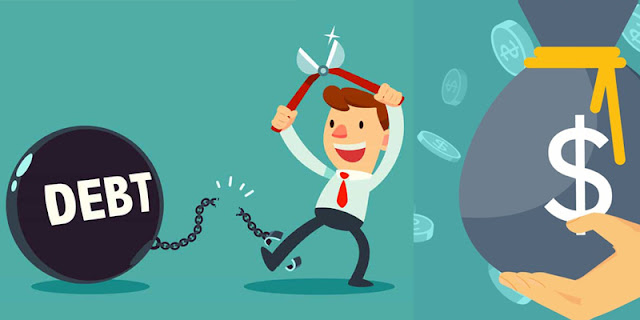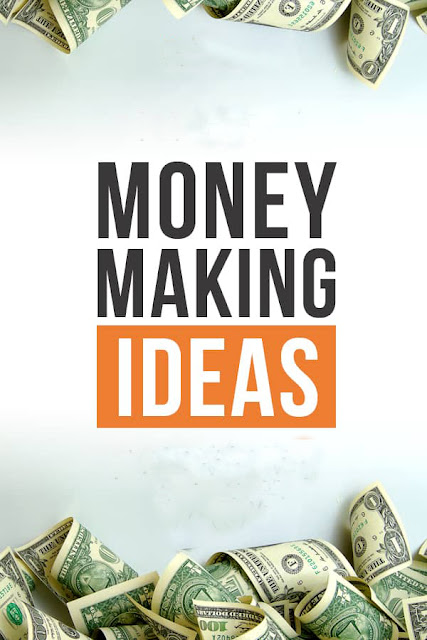 |
| 10 Signs Your Credit Card Debt Is Out of Control and How to Fix It |
Credit cards that are maxed out or almost maxed out become a burden instead of a convenience. With little available credit, it is no longer useful for emergencies or other unforeseen expenses, high balances can damage your credit scores, and debt can become unmanageable when high-interest rates make it difficult to pay off balances.
KNOW WHEN TO REIN IN YOUR SPENDING
No external gauge will let you know when your credit card debt is out of control. Your credit card issuers will not warn you that your balances are more than you can afford to pay. Instead, it's up to you to watch for the 10 signs that show that your debt is out of control:
- Cards are maxed out or above the credit limit. This can happen quickly if you're not paying your balance every month. Multiple max-out credit cards add up to the problem. If balances exceed limits, expect the card issuer to increase your interest rate, making it even more difficult to pay down your balance.
- You can't afford to pay anything except the minimum payment. Minimum payments are the lowest amount that you can pay on your credit card to keep your account in good standing. If you can't pay more than that and you're still using your credit cards, your debt is getting worse every month.
- You're late or missing payments. Missing payments only make your credit card situation worse. Late payments increase the amount you have to pay in order to be caught and lead to late charges added to your balance. If your card is fully charged, those late fees could push your balance beyond your limit.
- You're paying your credit cards with other types of debt. Cash advances, repeated balance transfers, payday loans, or any other form of credit card debt simply create more debt by borrowing money to stay afloat.
- You're using credit cards for necessities and everyday purchases. Credit cards are a convenient way to pay for groceries, gas, and other daily needs — and you might even get reward points or cash back for doing so. This is great if you pay the balance every month. If not, the need for credit to pay for daily expenses is a sign of greater financial difficulties.
- Your credit score starts dropping. If your total credit card debt is more than about 30% of your total credit available, your credit score will be hit. This ratio is 30 percent of your total credit score. So, if all of your cards combined have a credit limit of $5,000, you never want your combined balances to add up to more than $1,500.
- Your new applications are denied. Credit card issuers may be able to predict that your credit card debt is out of control even before you do so. After a refusal to apply for a credit card, check your mail for a letter from the credit card issuer explaining why you were denied it. If your high credit card balance is one of the reasons, it's a sign that you need to rein in your spending and start dealing with your debt before it gets worse.
- You're hiding your debt from yourself or your spouse. Feeling like you've got something to hide is a sign that things are wrong. If you don't open your credit card statements because you don't want to face up to your balances, or if you're going out of your way to keep your spouse from finding out about your debt, you 're likely to have more debt than you can.
- You can't afford to save money because you have too much debt. You can't afford to save money because you've got too much debt. The more money you spend on your debt, the less you spend on other things — like saving money. Without access to savings, you may need to create even more debt to get out of a financial bind.
- You worry about how you're going to pay off your credit cards. Stressing your credit card debt is a sign that it's definitely out of control, but don't assume that you're safe because you're not stressed about your debt. It might be that you 're ignoring your debt. Or, you might be in denial about how bad it really is.
 |
| 10 Signs Your Credit Card Debt Is Out of Control and How to Fix It |
STOP DIGGING
This is the old adage of the first step towards climbing out of a hole. To get your debt under control, the first thing you need to do is change your habits so that you don't make the problem worse.
Simply stop using your credit cards. If you keep using them, your debt will only grow, making it more difficult to pay. The best way to stop using your credit cards is to cut them off — especially if you're not disciplined enough to stop using them. However, avoid closing accounts if at all possible. Since your debt ratio is an important part of your credit score, you want to increase your available credit by paying down your debt to improve your credit score.
ELIMINATE YOUR DEBT
Recognizing the severity of your debt is an important first step, but you need to take action to address the problem. You've got to come up with a workable plan and stick to it — and sticking to it might be the most important part of it. Debt can take a long time to get rid of, and the results may not be evident at first. Be patient and persistent, and ultimately, your efforts will make a difference.
There are several ways to deal with your debt, and what is best for you depends largely on your financial situation and also a little on your own personality. Think about what's best for you and your situation.
- Eliminate high-interest-rate debt first. This makes sense because high-interest rates can be the biggest obstacle to debt elimination. If you pay a double-digit interest rate — or something even higher than 20%—it can be difficult to pay off balances. The faster you can lower your balance on those high-interest debts, the more impact your monthly payments can have. If you still have a decent amount of credit, it is also worth considering applying for a new credit card with zero percent interest on balance transfer over a period of time. Adding another credit card might seem counter-intuitive, but if you can be disciplined and do so only as a means of eliminating some of the interest you pay, it's an effective strategy.
- Try the snowball method. Author and radio host Dave Ramsey has popularized this method. Target the lowest balance first, then move to the next lowest balance, and so on. While this strategy is likely to result in more interest payments than the previous method, it can be a good approach if you need to build confidence in dealing with your debt. Because you're starting with the lowest balances, you 're going to eliminate them faster, giving yourself a sense of achievement as you work through your debt.
 |
| 10 Signs Your Credit Card Debt Is Out of Control and How to Fix It |


